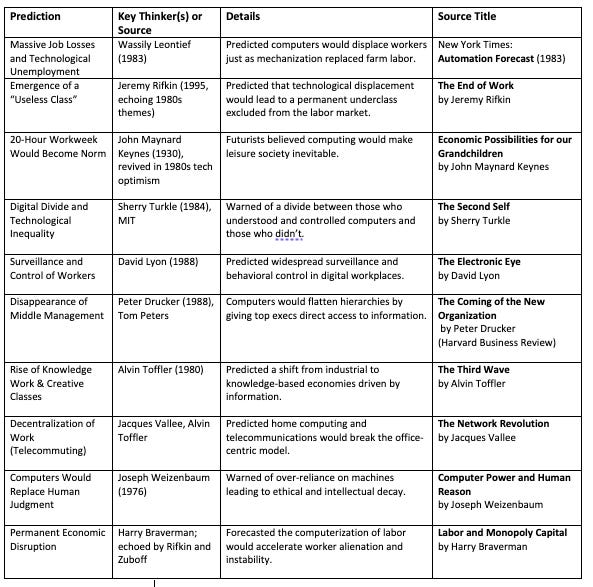The End of Work as We Know It
And I feel Fine
09.12.25
Watching the arguments about job loss and AI feels like rewatching an old movie to me. I was a very, very early adopter of desktop computing (1979) and email (1980). It made all of the difference in my life and career. I often tell people that I was freed when I got my first keyboard.
I read widely and studied the forecasts trying to understand how to take advantage of the emerging opportunities. I went to a vocational school to learn to code (1979). I researched every new piece of software and learned how to make machines overcome their limitations.
In the 1980s, computing and automation technologies began reshaping industries. Many thinkers made bold predictions about how these tools would transform work. Some predictions proved prophetic. Others captured the fears and hopes of a society standing at the edge of the digital revolution.
This following table presents key predictions, their proponents, detailed context, and relevant source titles. A list of URLs for further reading is in the first comment.
Scan it. You’ll find some familiar themes. Great shifts in technology usually provoke big feelings and big fears. The reality is almost always slower and smaller than the hype.



